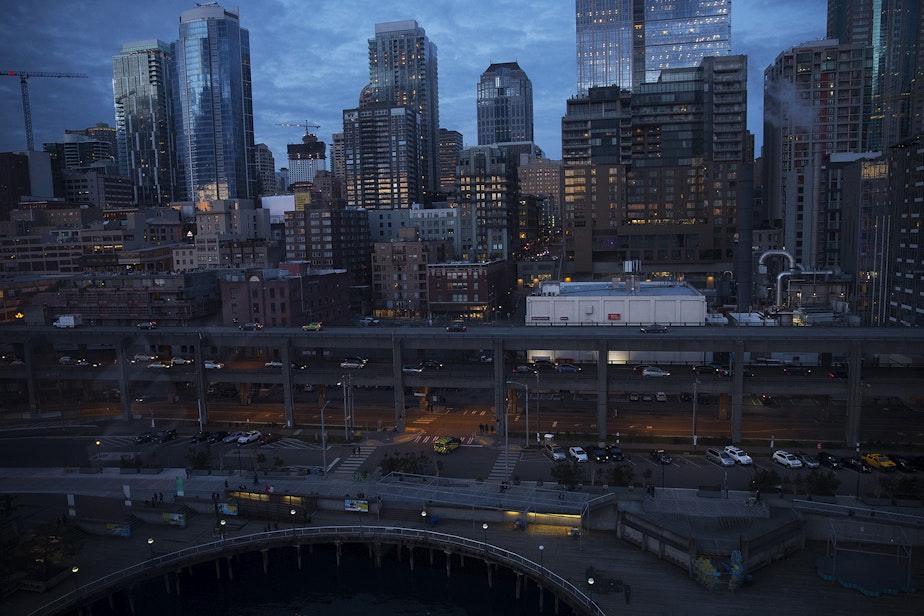Mayor Durkan on Seattle's Via-doom: 'People have to change'

Via-doom, the Seattle Squeeze, whatever you're calling it: Getting around Seattle is going to be a lot different after Friday, when the Alaskan Way Viaduct closes down for good.
Seattle Mayor Jenny Durkan spoke with KUOW’s Angela King about what to expect.
Durkan: This is the last Monday that there will be a viaduct. We have over 90,000 cars taking Highway 99 and it's going to be gone. And that's going to put pressure on everything else. So people have to change how they get to work.
King: Getting to work on time, picking up their kids on time, just getting around in general: any suggestions?
Durkan: We want to make sure that people can get where they need to get safely. We want to make sure that the police and fire can get through when they need to. So we need everyone to make a few changes in their life.
The first is make a plan right now: Think about if your commute is going to be impacted, how are you going to change it?
If you don't have to drive by yourself, please don't. We've added buses. We added a water taxi. We're having easier ways for people to get picked up and taken to transit.
Talk to your boss if you can work a little bit different hours so you're not trying to come in right at the crunch time or even work from home.
But we also know that no matter how much we plan and work things can go wrong. And so people really have got during this period of time to be kind to one another, to realize it's just going to be tough for a period of time.
Sponsored
But at the end of the day it's going to all be worth it because we're going to have such an amazing waterfront where the viaduct comes down. But to get between now and then it's going to take everybody working together and realizing it's just going to be hard for a while.
Again 90,000 cars go on Highway 99 — not everything can just switch to I-5 or to the surface streets.
King: You mentioned sometimes people will think, oh my gosh it's going to be as terrible as it possibly can be, and then things don't quite turn out that way. Do you really think it's going to be Carmageddon, Via-doom?
Durkan: People prepare, then it doesn't seem as bad, so everyone rushes back to their old habits. Then it's bad again. So people really have to get a new custom and practice.
But not everything's going to go smoothly: You're going to have a car accident or emergency incident, a fish truck is going to turn over.
So we have been really working hard for the last year to plan for those things.
We're going to eliminate a lot of on-street parking in the main thoroughfares to open up more space. We're going to have additional incident response teams that can come and clear accidents quickly. We have Gen. (Mike) Worden who's going to coordinate the dozens of city agencies that are involved.
King: Any plans to address a suggestion by Councilwoman Kshama Sawant to offer free bus rides during the closure?
Durkan: We've really increased the amount of transit we have. You know we give free bus rides and transit for youth. Metro is the one that provides the bus rides and we're working with them. But the way our buses operate it's not as easy as it sounds.





